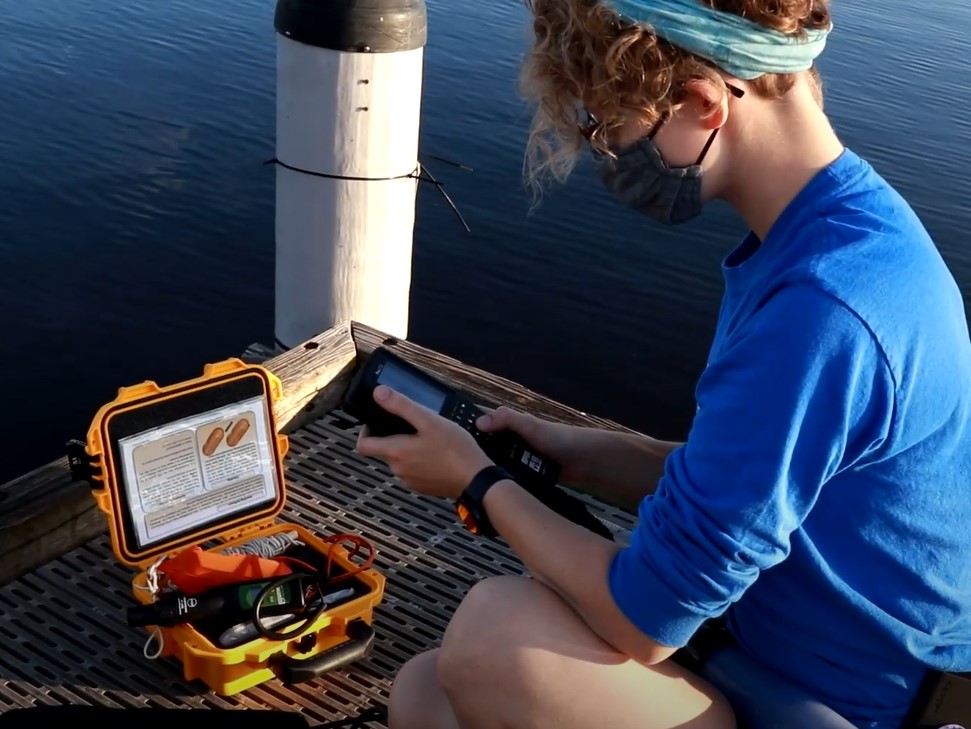Jeff Igbokwe
The Biology Program and the Special Events Committee at the University of West Georgia held its second seminar of the spring 2024 Biology seminar series last Friday, which welcomed UWG alumni Gillian Barber back onto campus as a guest speaker.
Barber attended UWG from 2018 to 2019, graduating with a BS in Biology and Honors distinction. Barber made her return to campus to give current students interested in a career in Environmental Biology guidance on how to get involved in the field as well as how to properly manage school and your mental health. She shared with them her career journey so far, from being a student at UWG to her current work as a fellow at Chattahoochee River Keeper (CRK), a fellow meaning a person specializing in a specific field post formal education.
“I’m a fellow, and what I do is handle the trash trap program with my supervisor, and I also do water quality testing in LaGrange,” said Barber. “There we test for E.coli and make sure there’s no sewage spills. On occasion, I staff events and do artwork for CRK, as well as microplastic sampling.”
Barber joined CRK in Dec. 2023 as a trash trap fellow. The trash traps are small-stream litter collection devices with the purpose of catching any garbage floating in the river from stormwater runoff. These devices use booms to guide the garbage into a collection area where it can be captured and emptied by hand after a rainstorm.
While this role was important as the volume of garbage in rivers, lakes and oceans has become a global crisis, Barber wanted to prove her worth to CRK as she had more to offer the organization. She began identifying small creatures rescued from the trash traps, and wrote a short paper called “Unveiling Microplastic Contamination in the Chattahoochee River.” Her extra work and overall knowledge of Environmental Biology have helped her become an asset to CRK. Barber has an invite to test 25 to 50 water samples in LaGrange as well as assist with educational programs and events for the youth.
“Here at UWG I took a Marine Biology course with Dr. Yvette Garner and that’s what really got me interested in switching from lab science like genetics to going into Ecology, Marine Biology, and Watership Protection,” Barber said. “From there, I looked into doing a senior thesis with phytoplankton, and then I did my master’s degree, so it all kind of spiraled from that first course at UWG.”
During her seminar, Barber noted how the University has been instrumental in helping her strive to prosper in the field she knew she was capable of succeeding in. Attending the University of Georgia before enrolling at UWG, she spoke about how she felt she needed to re-adjust after a rough time at UGA.
A new environment on a large new campus, new relationships and issues with time management took a toll on her mental health. UWG’s smaller campus size and the fact that she already knew the professors since the age 16 from the University System of Georgia (USG)’s Advanced Academy of Georgia, drove Barber to make the switch.
One of the key messages Barber was able to provide to students was that in her line of work, being proactive was key to helping you stand out, and seize opportunities.
“With Environmental Biology, Ecology and all of that fieldwork heavy stuff, I think it’s really important to have hands-on experiences out in the field,” said Barber. “A lot of time in the classroom you just learn about it, whereas going out and putting your hands in the soil, in the water and on animals is really what makes your resume stand out.”
You may also like
-
3rd Annual At the Core Conference Recognizes Freshmen and Sophomore Undergraduate Research Across Disciplines
-
Greek Week 2024: Teams Strive to Have The Odds Ever in Their Favor
-
Chi Omega Raises Money For The Make-A-Wish Foundation
-
West Georgia Outdoors Lake Day Gives Students a Chance to Destress Before Finals
-
“The Toxic Avenger” Closes UWG Theatre’s “Resistance is Futile” Season
